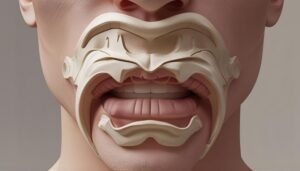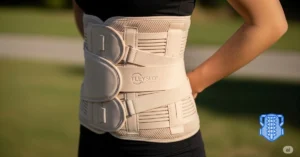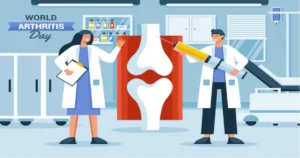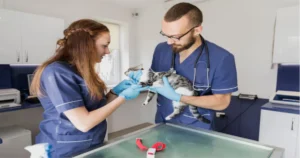Introduction to Frozen Shoulder Menopause
Frozen shoulder, or adhesive capsulitis, is a condition characterized by stiffness, pain, and limited mobility in the shoulder joint. While it can affect anyone, it is particularly common in menopausal women. The hormonal changes that occur during this stage of life can exacerbate or even trigger joint-related issues, including a frozen shoulder. This comprehensive article will explore the relationship between menopause and a frozen shoulder, along with symptoms, causes, treatment options, and prevention strategies.
1. What is Frozen Shoulder?
Frozen shoulder, or adhesive capsulitis, is when the connective tissue surrounding the shoulder joint becomes inflamed and stiff. This results in pain and severely restricted motion. The condition progresses in three stages:
- Freezing Stage: Gradual increase in shoulder pain, with decreasing range of motion.
- Frozen Stage: Pain may lessen, but the stiffness remains, limiting movement.
- Thawing Stage: The condition begins to resolve, with improved movement over time.
Frozen shoulder often develops slowly and can take months or even years to recover fully.
2. Symptoms of Frozen Shoulder
The symptoms of a frozen shoulder typically progress over time. Key indicators include:
- Pain and Stiffness: Sharp pain in the shoulder joint, especially when moving the arm.
- Reduced Range of Motion: Difficulty raising the arm, reaching for objects, or performing overhead movements.
- Shoulder Weakness: A weakening of the shoulder muscles due to lack of use and movement.
- Sleep Disturbances: Pain that worsens at night, making it difficult to sleep on the affected side.
These symptoms can last anywhere from several months to three years if not treated.
3. Menopause and Its Impact on Joints
Menopause marks a significant transition in a woman’s life, marked by the cessation of menstruation and a decrease in estrogen production. Estrogen is known to have a protective effect on bone and joint health. As levels drop during menopause, women may experience joint pain, stiffness, and an increased risk of joint conditions like frozen shoulder.
Hormonal changes can also lead to a loss of collagen, the protein that provides structure to the skin, bones, and joints. As collagen decreases, joint flexibility and mobility can compromise, contributing to stiffness and discomfort.

4. The Connection Between Frozen Shoulder and Menopause
Although frozen shoulders can affect anyone, women between the ages of 40 and 60—typically during the peri-menopausal and menopausal stages—are more likely to develop the condition. Hormonal fluctuations, particularly the drop in estrogen levels, may contribute to joint inflammation and stiffness. Estrogen helps maintain synovial fluid, which lubricates joints and prevents stiffness. Reduced estrogen during menopause can decrease lubrication, making the shoulder joint more prone to inflammation and limited mobility.
Studies on Menopause and Frozen Shoulder
Several studies have found a correlation between frozen shoulder and menopause. Research suggests that post-menopausal women are at a higher risk of developing musculoskeletal disorders, including frozen shoulder, due to the decline in estrogen and its protective effects on the joints.
5. Causes of Frozen Shoulder in Menopausal Women
The exact cause of a frozen shoulder remains unclear, but several factors increase the risk of developing it during menopause:
Hormonal Imbalance
As estrogen levels decrease, so does the body’s ability to maintain healthy joints. This hormonal imbalance can lead to inflammation, which affects the shoulder’s connective tissue.
Inactivity
Menopausal women may experience fatigue and other symptoms that reduce their overall activity levels. Lack of movement can cause stiffness in the joints, including the shoulders, contributing to a frozen shoulder.
Metabolic Changes
Menopause is often accompanied by metabolic changes, such as weight gain and insulin resistance, which can affect joint health. Women with diabetes are at a higher risk of developing frozen shoulder, and menopause can exacerbate these risks.
Autoimmune Response
Some evidence suggests that a frozen shoulder may be linked to autoimmune responses, where the body’s immune system attacks its tissues. The hormonal shifts during menopause might trigger or worsen such responses, leading to inflammation in the shoulder.
6. Treatment Options for Frozen Shoulder
While a frozen shoulder can be painful and debilitating, several treatment options are available. The goal is to alleviate pain, restore mobility, and prevent recurrence.
Physical Therapy
One of the most effective treatments for frozen shoulder is physical therapy. A trained therapist will guide you through exercises to improve your range of motion and strengthen the shoulder muscles. Stretching and strengthening exercises help to loosen the stiffened joint capsule and prevent further deterioration.
Medications
Pain relief is a crucial aspect of frozen shoulder treatment. Over-the-counter pain relievers, such as ibuprofen or acetaminophen, can help manage pain and reduce inflammation. In severe cases, your doctor may recommend corticosteroid injections to reduce inflammation and improve mobility.
Hydrodilatation
Hydrodilatation is a procedure where a sterile fluid is injected into the shoulder joint to stretch the capsule and increase the range of motion. This treatment is often used when physical therapy alone cannot alleviate symptoms.
Surgery
Surgery is typically considered a last resort when other treatments have failed. The procedure, called arthroscopic capsular release, involves using small instruments to remove or cut through the stiffened parts of the joint capsule, allowing for greater movement.
7. Exercises and Home Remedies
Regular exercise and stretching are crucial for recovering from a frozen shoulder, especially during menopause. These simple exercises can be done at home to relieve symptoms:
Pendulum Stretch
- Stand and lean over slightly, allowing the affected arm to hang down.
- Gently swing the arm in small circles, clockwise and counterclockwise, 10 times in each direction.
Towel Stretch
- Hold a towel behind your back with both hands.
- Use your good arm to pull the towel upward, stretching the affected arm.
- Repeat 10-20 times daily.
Finger Walk
- Face a wall and walk your fingers up the wall as high as you comfortably can.
- Hold the position, then slowly lower your arm.
Ice Packs and Heat Therapy
Applying an ice pack for 15-20 minutes can help reduce swelling and pain. Heat therapy using warm compresses can help relax the muscles and improve circulation, promoting healing.
8. Preventing Frozen Shoulder During Menopause
Prevention strategies focus on maintaining joint flexibility, mobility, and overall health. Here are a few tips to help reduce the risk of a frozen shoulder:
Stay Active
Regular physical activity helps keep the joints flexible and strong. Incorporate aerobic exercise, strength training, and stretching into your routine.
Manage Hormonal Imbalances
Consider hormone replacement therapy (HRT) to alleviate menopausal symptoms and support joint health. Always consult your doctor before beginning any hormonal treatment.
Healthy Diet
A diet rich in anti-inflammatory foods like fruits, vegetables, and omega-3 fatty acids can help reduce joint inflammation. To support bone health, make sure to consume enough calcium and vitamin D.
Posture Correction
Maintaining good posture can prevent unnecessary strain on the shoulders. Be mindful of your sitting and standing posture, especially if you are sedentary.
9. When to See a Doctor
While a frozen shoulder often resolves on its own, it’s important to consult a doctor if:
- Pain and stiffness worsen, making daily activities difficult.
- Symptoms last for more than a few months without improvement.
- Home treatments and exercises do not provide relief.
Early intervention can prevent the condition from progressing and causing long-term complications.
10. Conclusion
Frozen shoulder during menopause is common due to hormonal changes, reduced activity, and other age-related factors. Understanding the connection between menopause and joint health is crucial for managing symptoms effectively. By staying active, seeking appropriate treatment, and maintaining a healthy lifestyle, menopausal women can reduce their risk of developing frozen shoulders and improve their overall well-being.
Addressing a frozen shoulder in its early stages and following a tailored treatment plan can significantly reduce recovery time and restore mobility. Always consult healthcare professionals to find the most suitable approach for your condition.
Frequently Asked Questions (FAQs)
What are the early signs of a frozen shoulder?
Early signs include mild pain and stiffness in the shoulder joint. Gradually, the range of motion becomes more limited, and the discomfort may worsen, especially during movements like lifting or rotating the arm.
Can menopause cause shoulder pain?
Yes, menopause can contribute to joint issues, including shoulder pain, due to hormonal changes like reduced estrogen levels. This can lead to joint stiffness and inflammation, potentially resulting in conditions such as a frozen shoulder.
How long does it take for a frozen shoulder to heal?
Frozen shoulder typically heals within 1 to 3 years. The condition progresses through three stages: freezing, frozen, and thawing, with varying levels of pain and stiffness throughout. Early treatment can help shorten the recovery time.
What exercises help relieve a frozen shoulder?
Gentle exercises like pendulum swings, towel stretches, and finger walks can help improve mobility and reduce stiffness in the shoulder. Regular stretching and physical therapy are recommended for faster recovery.
Is a frozen shoulder preventable during menopause?
Yes, maintaining an active lifestyle, practicing good posture, and including joint-friendly exercises in your routine can help prevent a frozen shoulder. Hormone management and a healthy diet may also support joint health during menopause.
When should I consult a doctor about my shoulder pain?
Consult a doctor if shoulder pain persists over a few weeks, worsens, or significantly limits movement. Early medical intervention can prevent the condition from worsening and speed up recovery.
READ ALSO: How Long Does it Take Shrooms to Kick In?





















